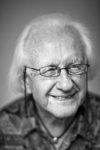Is Peaceful Research Possible? On the Methodology of Peace Research
FEATURED RESEARCH PAPER, 1 Jul 2019
Prof. Johan Galtung – TRANSCEND Media Service
- Introduction
The problem to be explored in this paper can be stated very briefly as follows: is peace research necessarily a peaceful activity? More precisely, is there a meaningful distinction between violent and nonviolent methodologies in peace research? And if there is such a distinction, we are immediately led onto more questions: could it be that some methodologies very frequently employed in fact are highly violent?; what would alternative, nonviolent methodologies be like? – and the final, in a sense most fundamental question: does peace research have to be pursued with nonviolent, peaceful methodologies?
To many social scientists a decade or two ago these questions would sound like they were fully absurd. This would also apply to peace research some time ago; including the present author. When Fred Blum some time ago asked the very crucial question of whether one could study nonviolence with violent means of study the question was seen as an irritant, and shrugged off. For the answer seemed so obvious: peace is the absence of violence, violence is seen as direct violence, as typified by shooting, and no social scientist in general, peace researcher in particular, (or the present author even more particularly) had ever included shooting or other forms of direct violence in the typical methodological repertory. True, there was the problem of cooperating with those who do, with the military, but although borderlines were difficult to define, and although the military could permeate the society so profoundly that there was almost no nonmilitary corner left at least the problem was understood some action could be initiated, alternatives could be found. But besides that this was seen as rather unproblematic.
Not so any longer. Many social scientists and others, most of the outside the particular field and group of peace research, have reflected profoundly on this question, and came to conclusions similar to those that will be presented here. Why not just refer to those authors? For the simple reason that premises are often as important as conclusions because premises can lead on to new conclusions, open for new vistas – for which reason conclusions arrived at via different ways of reasoning are never identical. Moreover, it is also important to show that within peace research there has developed a form of understanding that also can ge turned against itself, that the subject can be object of comprehension, in a ever deepening effort to arrive at self-understanding. Needless to say: it is at this point that the conceptualizations around the notion of “structural violence” become useful, exactly when applied to peace research itself.
Some year ago people at the International Peace Research Institute in Oslo started turning the analytical searchlight provided by such elements against their own institute, and it did not look too good. The result was an effort to see peace research not only as an activity resulting in articles, books for elitist or public consumption, even in peace action of various kinds, but also as a way of organizing the activity resulting in that type of peace research product. The result was, concretely, a number of structural changes at Institute itself. The old formula, peace as absence of direct violence, made the Institute look peaceful since there was no shooting, not even fist fighting during seminars, tea breaks, or on any other occasion – but the extended concept of violence bringing in notions of structural violence made it look completely different. And this article, then, is an effort to carry that concept further and look at peace research itself, not only the peace research institute.
- Social Science Research and Structural Violence
What is “structural violence?”
***************
To continue reading download PDF file:
Is Peace Research Possible? On the Methodology of Peace Research
__________________________________________
Johan Galtung, a professor of peace studies, dr hc mult, is founder of TRANSCEND International and rector of TRANSCEND Peace University. He was awarded among others the 1987 Right Livelihood Award, known as the Alternative Nobel Peace Prize. Galtung has mediated in over 150 conflicts in more than 150 countries, and written more than 170 books on peace and related issues, 96 as the sole author. More than 40 have been translated to other languages, including 50 Years-100 Peace and Conflict Perspectives published by TRANSCEND University Press. His book, Transcend and Transform, was translated to 25 languages. He has published more than 1700 articles and book chapters and over 500 Editorials for TRANSCEND Media Service. More information about Prof. Galtung and all of his publications can be found at transcend.org/galtung.
Tags: Education for Peace, Johan Galtung, Peace, Peace Research
This article originally appeared on Transcend Media Service (TMS) on 1 Jul 2019.
Anticopyright: Editorials and articles originated on TMS may be freely reprinted, disseminated, translated and used as background material, provided an acknowledgement and link to the source, TMS: Is Peaceful Research Possible? On the Methodology of Peace Research, is included. Thank you.
If you enjoyed this article, please donate to TMS to join the growing list of TMS Supporters.

This work is licensed under a CC BY-NC 4.0 License.
Read more
Click here to go to the current weekly digest or pick another article:
FEATURED RESEARCH PAPER:

